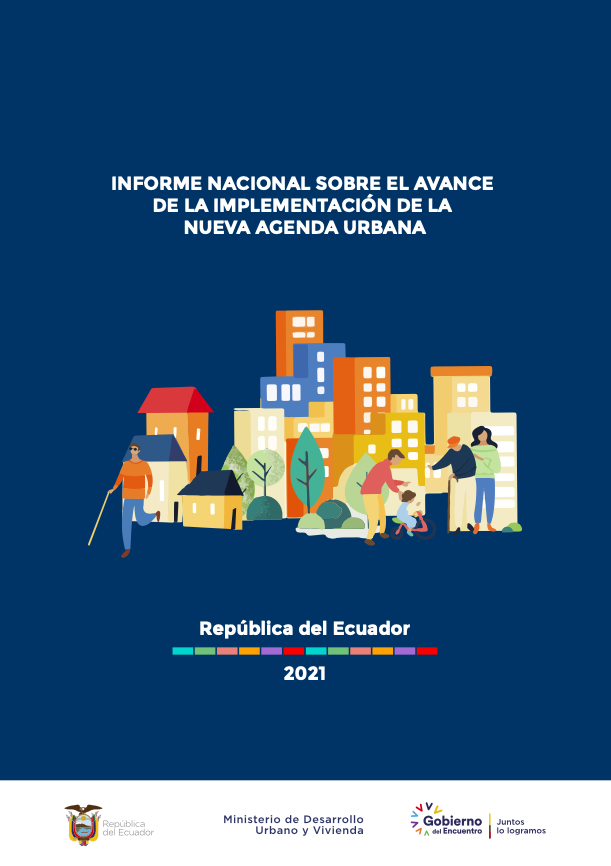National Report 2021
Through the New Urban Agenda, the member states of the United Nations, and in particular Ecuador, committed to define a public agenda built with citizens to achieve sustainable urban development. This commitment is based on the articulation of efforts from different sectors, public, private, civil society and academia, to generate a roadmap with specific goals and actions in the country. In this way, and as a product of several processes promoted by the Ministry of Urban Development and Housing (MIDUVI), the Sustainable Habitat Agenda for Ecuador 2036 (AHSE 2036) was created.
A joint effort led by MIDUVI, with the participation of cooperation agencies, public institutions, private sector, academia, non-governmental organizations and various civil society actors. The AHSE 2036, is a reference that guides urban policies on cities and habitat based on a human rights approach, framed in the Constitution of Ecuador and establishes guidelines to advance in the implementation of the 2030 Agenda, the NUA, the Sendai Framework, the Paris Agreement and the Regional Action Plan developed by CEPAL. The AHSE 2036 is an instrument that proposes strategies, that result into lines of action towards the achievement of equitable, environmentally sustainable, productive cities and human settlements, with good governance; in accordance with the SDGs.
Ecuador assumes the commitment to advance towards the accomplishment of the goals agreed upon in the NUA, in accordance with the Sustainable Development Goals, particularly SDG 11; in addition to the Sendai Framework for Disaster Risk Reduction and the Paris Agreement of the United Nations Convention on Climate Change, in order to achieve cities and human settlements where all people can enjoy equal rights and opportunities, that is, "where no one and no place is left behind".
This commitment is based on the articulation of efforts from different sectors, public, private, civil society and academia, to generate a roadmap with specific goals and actions in the country. In 2021, aligned with the Global Agendas and the AHSE 2036 and strengthening its role as the governing body of habitat and housing, the MIDUVI has generated the National Habitat and Housing Plan (PNHV), which emerges as a response to the various challenges that arise within the cities and communities of the country. The PNHV arises as a response to the various challenges that arise within the cities and communities of Ecuador. This instrument addresses 12 of the 17 Sustainable Development Goals, with a greater emphasis on SDG 1: End Poverty, SDG 6: Clean Water and Sanitation, SDG 11 Sustainable cities and communities and SDG 12: Responsible production and consumption, thus promoting habitat development to achieve inclusive, safe, resilient, and sustainable cities and communities.
In order to promote the institutionalization of the AHSE 2036 in compliance with the international commitments made by the country; and to promote the formulation of public policy on habitat and housing in Ecuador, with human rights based approach and sustainable development, the PNHV contains programs and projects aimed at reducing the housing deficit in Ecuador and improving the quality of life of all inhabitants, contributing to sustainable urban development and the consolidation of a National Urban Policy.
Pagination
- Previous page
- Page 27
- Next page


